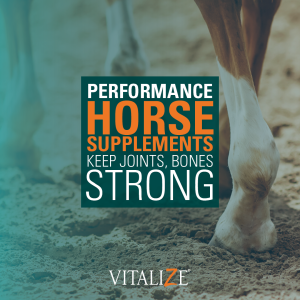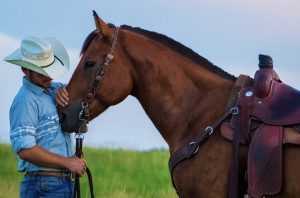
As humans, we are often guilty of rushing through meals. Time is a precious commodity, and we chow down our food on the go, just to get to the next meeting, event or task. Well, not every animal is built to throw back their food and get going—that includes some people! This is especially true for horses. That’s why we want to talk about why you should slow feed horses in your stable.
Grazing is the evolutionary default of horses—their bodies & digestive tract work best when slowly foraging across the ground. Unfortunately, this doesn’t always mesh with the layout of a barn or our schedules as their caretakers.
Thankfully, there’s a lot we can offer our equine companions to help them slow down and get back to their grazing ways. Slow horse feeders are a way to regulate or slow a horse’s food consumption, better replicating a horse’s constant foraging behavior. A raised slow horse feeder can also assist in horse colic prevention.
The Benefits of Slow Feeding Horses
That’s why it’s important to slow feed. Horses are natural grazers. Under their natural conditions, horses can spend 12-16 hours per day eating forage. Today, many horses are not on pastures with forage, so they are not allowed to graze for that long. When a horse’s stomach becomes empty, that is when digestive issues start to happen.
Although horse lovers do offer hay to their horses daily, the horses typically rush to eat the hay or waste a lot of hay. Slow horse feeders are different from conventional hay feeders. There are many different designs, but most of these feeders have small to medium-sized holes through which the horse can nibble hay slowly, which mimics grazing and limits overeating.
In addition to mimicking the natural grazing behavior that horses are known for and enjoy, there are other key benefits to trying to slow feed horses.
Prevents Boredom
Horses get bored in their stall during the day. What do we do when we are bored or stressed? EAT!
When you slow feed horses throughout the day, your horse will have a boredom reliever. A bored horse can otherwise pick up some bad habits that can be detrimental to their well-being and psychological health, including:
- Cribbing
- Pacing
- Self-mutation
- Stall kicking or pawing
- Chewing on inanimate objects
- Eating manure
Reduces Risks of Ulcers
A horse’s stomach produces acid 24 hours a day (16 gallons for a 1,000-pound horse) in preparation for constant uptake and can begin to empty in as little as 15-20 minutes. Chewing activates saliva (an alkaline substance) production, which buffers gastric acid.
Under natural circumstances with free-choice forage, the horse will produce about five gallons of saliva daily and recycle much of the water content via re-absorption prior to excretion.
When fiber is in the stomach, it prevents acid splashing. The fiber in the stomach acts like a mat of sorts, which is very important during transport/hauling and high-performance activities.
Increased Digestion
As we alluded to earlier, horses are natural grazers. The more they “graze” or eat forage from their slow horse feeders, the better their digestive system will work. We know that 70% of the immune response starts in the digestive system, so the more we can increase digestion, the healthier your horse will be. Increased digestion also helps reduce the chances of colic.
Less Hay Waste
Perhaps for the horse owner, one of the bigger benefits of trying to slow feed horses is less hay waste. With the slow feeders, less hay ends up on the ground, is trampled, contaminated, or blows away (if outside). This can give you the peace of mind that your horse is getting full of the nutrients it needs and your money isn’t just blowing in the wind.
A Few Words of Caution
Although the benefits largely outweigh the cons of using a slow horse feeder, there are few things equine enthusiasts should consider.
Metal Grates
Horses are curious, and if you use a hay feeder that is metal, your horse will likely gnaw or chew on it. Metal grates are harmful to your horse’s dental health. The metal grates wear heavily on the horse’s teeth, creating uneven grinding surfaces and damage to the incisors.
Hay Nets vs. Hooves
Slow feed hay nets could get caught on your horse’s shoe if the net is hung too low. Take caution to try to hang it at least at the point of your horse’s shoulder. Or put the net in another container like a plastic trash can where there is no chance of the shoe getting caught in the net.
Feeding too High
Hanging your slow horse feeder too high can lead to respiratory and muscular challenges. Securing slow horse feeders where the horse must drop its head to eat will help facilitate drainage from the nasal passages and lower the risk of respiratory infection.
Choosing your Slow Horse Feeder
There are many slow horse feeders on the market for you to select from. There are big bale feeders, net feeders, box-type feeders, collapsible feeders and more. You need to consider what is best for your horse, your stable and you when choosing a slow horse feeder.
Complement your Feeding Program with Good Nutrition
Regardless of the forage you feed or whether you slow feed horses or not, you need to give your horse the #goodgutfeeling it deserves. Vitalize® products can do that.
Vitalize is a line of supplements for horses and dogs with proven solutions to keep your animal healthy and performing. A variety of products exist for your horse’s nutritional and digestive health.
Find a Vitalize product that is right for you on our Product Navigator.

